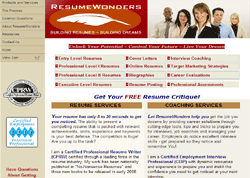Career Changes - Questions To Ask Yourself Before You Make Your Move
Extensive thought should always be given to the expectations and ramifications of a career change. Whether you are an entry level professional or have been working for decades, a career change can result in major life changes. Although I heartily agree that you should love what you do, careful thought and planning will ensure a career change is the right step for your professional and personal life. The questions below address important factors to consider before starting your decision making process.
1. Why do you want to change careers? Is the change sought for money, status, economy, or maybe boredom, office conflicts, or it is a desire to work in a different profession? Money is always an issue and in some cases must be the deciding factor; however, those individuals usually end up still unhappy with their career. Researching factors such as job expectations, stress levels, and hours you’ll spend on the job and the amount of expected travel to make sure your expectations are accurate. Lastly, examine your current options to see if there are any alternatives to making the change. Could you change your attitude on your current career? By setting new goals you may be able to improve your circumstances and positively manage career boredom or office politics.
2. Will this be the right job for you? Have you thought through what your day will be like? What skills you will be using? What will be expected of you in terms of skills, activities and responsibilities? Thoroughly research what the atmosphere and work environment will be like as well as what the job entails. Is this how you want to spend one third of your life? A great tool to help identify your behavioral preferences is a behavioral assessment analysis such as the DISC Behavioral Profiling Assessment. Proven to be accurate more than 80-85% of the time, the DISC Assessment is very effective in discovering strengths and weaknesses in your preferred behavioral style. The results can be utilized to understand what types of work patterns, skills, and environments you prefer and are a great tool for learning how to communicate more effectively and for improving professional relationships.
3. How will the new job affect your family or personal life? A new career is not only a major change for you but can also mean changes for your family or personal life as well. Check to see what the average work week will consist of; will there be longer hours or more travel? What will you or your family be giving up and what will you be gaining from the change? Is it worth it? A balance in professional and personal life will help keep both areas of your life healthy and enjoyable.
4. What are your career expectations for growth potential and/or promotion? Look into the possibility for advancements and determine if there are areas for promotion, available opportunities to take on additional responsibility and potential to make more money in your new chosen profession. Changing careers often places you back at a lower seniority status. You may start with a decrease in income from what you are used to and if there are layoffs or cuts made you may be the first to go. If this is going to be the case, make sure you have a sufficient nest egg set aside to handle unexpected changes.
5. What does the career change say to future employers about your commitment capabilities? Is this your first career change or is this something you have done before? If you have made similar changes in the past it may appear to an employer as a lack of dedication or focus on your part. Employers spend a great deal of time and resources hiring new employees and they expect their employees to be willing and able to a make long term commitment. Review your professional history and prepare positive interview responses regarding changes in past professions or positions. If this is your first career change prepare to show your career progression and always offer a positive spin on your past decisions ��" even if they were wrong you can still show what you learned and accomplishments you achieved along the way.
There are many more questions that can be asked of you before beginning a career change. For some a change will improve quality of life and it will be easy to determine if a career change is the right decision. For others, these questions will hopefully provide insight and help in making an informed decision. Either way it is important to take the time to think about the reasons for wanting a change and affects a career change will have on you and those around you.
Kris Plantrich is the owner of ResumeWonders Writing and Career Coaching Services and is certified in resume writing and interview coaching. Her business offer a wide-range of career management tools, samples and services at www.resumewonders.com.
